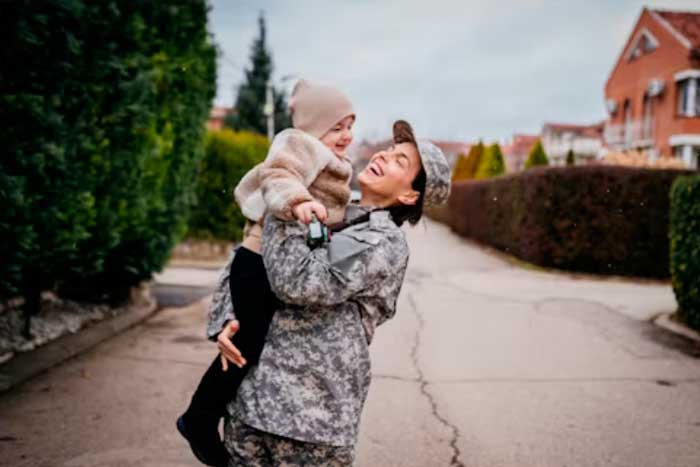Military service is a transformative journey, shaping individuals through structure, challenge, and purpose. The lessons learned extend far beyond the battlefield, influencing how veterans approach leadership, relationships, work, and adversity. For Dina Vardal, these experiences fostered a deep sense of discipline, resilience, and teamwork that remained long after the uniform was retired. Veterans carry with them a mindset honed by pressure and purpose, able to adapt quickly, lead decisively, and work with integrity.

The habits formed in service—punctuality, accountability, and attention to detail—become ingrained, guiding future endeavors. At the core, military values like honor and respect persist, shaping character and choices in every chapter of life. Whether in a boardroom, community, or family, the imprint of military service reveals itself in quiet confidence, shared commitment, and an unwavering dedication to something greater than oneself.
A Lifetime of Service and Learning
Military service shapes a person in ways that often become clearer with time. The structure, expectations, and challenges create an atmosphere where growth is constant. Each phase of service brings new responsibilities, and with them come insights that extend far beyond uniforms or deployments.
Over the years, lessons emerge from routine and high-stress moments. Training exercises, leadership roles, and time spent with fellow service members all contribute to a deep understanding of discipline, loyalty, and perseverance. These experiences often leave a lasting imprint that guides decisions long after active duty ends.
Discipline and Structured Habits
Discipline in the military isn’t just about following orders—it becomes a way of life. From early morning formations to strict attention to detail, these daily expectations build habits that stick. Over time, even small tasks like organizing gear or meeting tight deadlines become second nature, shaping how one approaches everything from work to personal goals. The structure helps create predictability in uncertain environments, reinforcing consistency.
Time management, accountability, and consistency grow out of this environment. A soldier learns to be dependable because others are counting on them. That same mindset carries into civilian life, whether it’s arriving early for meetings or staying calm under pressure. Even in highly dynamic workplaces, veterans often stand out for their ability to stay focused and complete tasks on time.
Leadership and Responsibility Under Pressure
Leadership in the military often begins before a formal title is ever earned. In high-stakes situations, individuals step up because there’s no other option. Being responsible for a team’s safety or success teaches more than any classroom ever could.
Making tough decisions under pressure, owning the outcome, and learning from mistakes are all part of the growth. Whether it’s guiding new recruits or coordinating a mission, these experiences forge leaders who comprehend authority and accountability. Such leadership continues to resonate long after the uniform is retired, influencing careers, families, and communities. The ability to inspire trust and lead by example becomes a lifelong trait.
Teamwork and Trust
In the military, the success of any mission often depends on how well people work together. Trust isn’t given—it’s earned through shared hardship, long hours, and knowing someone always has your back. That kind of bond builds a level of cooperation that’s hard to replicate outside the service.
Communication becomes more than just passing on information; it’s about clarity, timing, and intent. When lives depend on mutual understanding, people learn quickly how to listen and speak with purpose. These habits of teamwork and trust continue to shape how veterans contribute in group settings long after their service ends. The ability to operate within a team becomes second nature, often making veterans effective collaborators in fast-paced circumstances.
Adaptability and Resilience in Changing Conditions
Uncertainty is constant in military life. Orders change. Plans shift. Weather, terrain, or unexpected challenges can alter everything in an instant. Service members learn to adjust without hesitation, often making critical decisions with limited resources or time. That ability to stay calm and adapt becomes second nature. This flexibility often becomes a key asset in civilian careers, especially in industries that require quick thinking and problem-solving.
This kind of resilience is built through repetition and experience, often under stress. Whether navigating unfamiliar terrain or responding to a failed operation, the mindset shifts from “if” to “when” things change. That flexible outlook proves useful far beyond the battlefield—in careers, relationships, and life’s unpredictable turns. Veterans often find themselves helping others stay grounded during turbulent times.
Core Values
The values instilled during service don’t fade with time. Honor, integrity, respect—these aren’t just words in a code of conduct; they’re standards lived out daily. They shape how veterans treat others, how they handle adversity, and how they hold themselves accountable. These values often become the foundation for decision-making, especially when faced with moral or ethical dilemmas. Even years after leaving active duty, these principles guide decisions big and small.
